Tom Pritchard is a physical performer, maker and facilitator based in Glasgow. Here he tells us about his artistic process and Creative Futures Sura Medura Residency:
In January and February 2014 I was invited to be one of a number of artists resident at Sura Medura in Hikkaduwa, a small tourist town in the South West of Sri Lanka. The annual residency, set up by Glasgow based UZ Arts Director Neil Butler after the 2004 Tsunami and funded by Creative Scotland, offers artists an opportunity to engage in a very different cultural and social context over a period of up to 6 weeks. This is designed to be a mutually beneficial situation: while it is a period of potential reflection, self-development and experimentation for the artist, it is also a period where locals engage with international artists and the work that is produced is done so in dialogue with the local culture. It is, as perhaps all art should be, not driven by the making of commodities but rather creating a space for cross-cultural dialogue.
To give some personal context…my own practice spans a number of entry points, but is rooted in the practices of physical improvisation, somatic body practices and writing, which covers poetry through to playwriting. More recently I have become concerned less with the specifics of form of my practice and more with the content, intention and potential it has for creating a meaningful social and personal dialogue. It is, for want of a better term, maturing to become more politically and socially aware…I want to question more than art for the sake of itself.
I arrived in Sri Lanka with the intention to examine the borders between the two distinct aspects of my practice: the physical / abstract and the textual / narrative. I wanted to try and open up to the idea of abstraction in writing, using the Sinhala alphabet (in which I had no grounding) as a doorway. However, I realised relatively quickly, two things: I was not really interested in this as an investigation and I didn’t feel like I would be doing it for any other reason than self-congratulatory intellectualised research. In a country with such a fractious current and recent history, I decided to leave my ideas of conceptual high art behind and get real!
To cut a long story short, I found myself researching poetry that had been written in Sri Lanka or the diaspora since independence in 1948. I became interested in two points: how this poetry (for which we can equally read ‘art’) depicted the experience rather than (perhaps disputable) ‘facts’ of recent Sri Lankan history. How does the subjective give us a more genuine, and perhaps honest, understanding of that which took place? Also I was interested in how translation was seen in this context where language carries such historical significance…was it a potential tool of reconciliation or a politically volatile choice (or both!).
A little cultural context…the ethnic struggles and civil war arrived from a long-running dispute over land which far outdates, but was certainly further provoked by, colonialism. Since 1948 and then again since 1983 (when the ‘civil war’ began) the country has been torn apart physically, geographically and culturally. Everyone’s experience differs, from those running the (almost) unaffected tourist towns in the South to the displaced folk in the North for whom the war exploded around them daily. It is here that I see the value of drawing out individual, critical, creative responses to understand the breadth of what occurred. Poetry in Sri Lanka is written in 3 languages: Tamil, Sinhala and English. Many are bi-lingual, but few speak both Tamil and Sinhala. It is here that the issue of translation becomes very relevant…one question being: Is English the most appropriate language for mutual understanding, given that language’s own historical weight in the region?
Let’s shrink the picture again…during my residency I travelled North to Jaffna, and it was during this week spent in an area where Tamil is the majority ethnicity (though by far the minority in the general population) that my interest really sparked. I met with the generosity of university lecturers, poets and translators who shared not only their experience but also their own work and gave me books to take and read. In Colombo too, the generosity of poets such as Vivimarie Vander Poorten, whose two collections are among the most accessible and beautifully crafted work I’ve come across, and the young collective Poetry Pillau. These folk really opened up the understanding and differences in perspective not just on their writing or those of peers but also I began to see the cultural differences and, more importantly when I consider what I was hoping to use art for, mutual ignorance. The poets in Colombo often had little sense of the work being written in the North and while those in the North seemed to know more about the wider writing in Sri Lanka they also had a very particular view of how life was lived in the South. There was error, prejudice and ignorance on both sides and this was something I suggested the sharing of work, through translation or even shared spaces to read, might begin to resolve.
The conversations that emerged were really just beginnings for me, and those I had with the wider population are too many and too detailed for this frame to them justice. It is a country and peoples rich in so many ways, not least a pride of their country and cultures. Even so the tensions between Tamil and Sinhalese are still frighteningly evident and we are certainly far from the end of the oppression and inequalities there. Colonial hangovers of out dated laws, an aspiration out-flux of the educated and talented, long dated disagreements over land ownership, a strong and developing class hierarchy, huge gender inequality as well as the psychological and literal detritus of war (such as the uncleared land mines and bullet riddled buildings unrepaired in central Jaffna). There is much to say and there are many saying it but here in the West we hear little of it, particularly now the news worthy 15-minute drama of the war has passed.
As I went I also wrote. I was researching this subject not out of academic desire but rather to find a mirror in which to respond after all. Overwhelmingly I felt my writing was far too insignificant as a frame for what I experienced. I did not believe myself nor my work ready to give voice to a context I was so foreign to. So instead I listened and wrote the experiences of the everyday there, knowing it will be some time before I feel ready, if ever, to tackle the larger questions there. Perhaps all Ill ever be able to do is find those doing so in Sri Lanka and do what I can to share them with a wider world.
While the residency so generously offered me the introduction to the country, it was the conversations with the local artists and people which led me down a deeper track into what potential my engagement would have for me and, hopefully, for people there. I can only hope that I will be able to go back and continue learning and in time offer something of value back in return, such subjects and engagements do not happen in such a short time, but beginnings do. I offer here a couple of short pieces from my time in Sri Lanka and invite anyone who would like to talk further to contact me directly through my website.
Photos courtesy of Tom Pritchard.
More: Website | Twitter | Vimeo
//////
Want to read more blogs by artists? Look here.


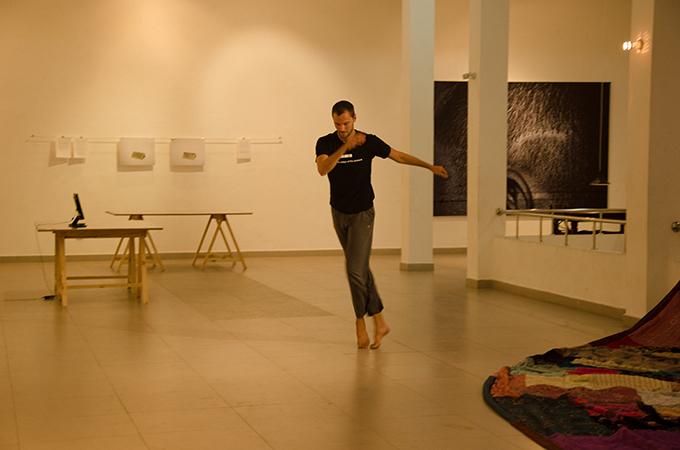
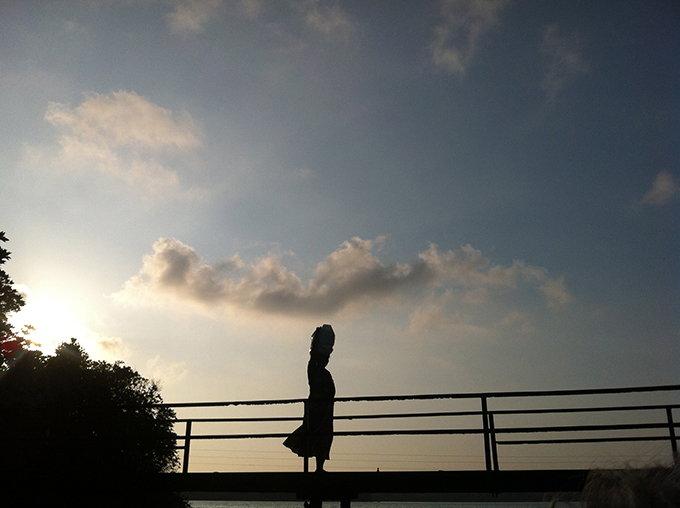
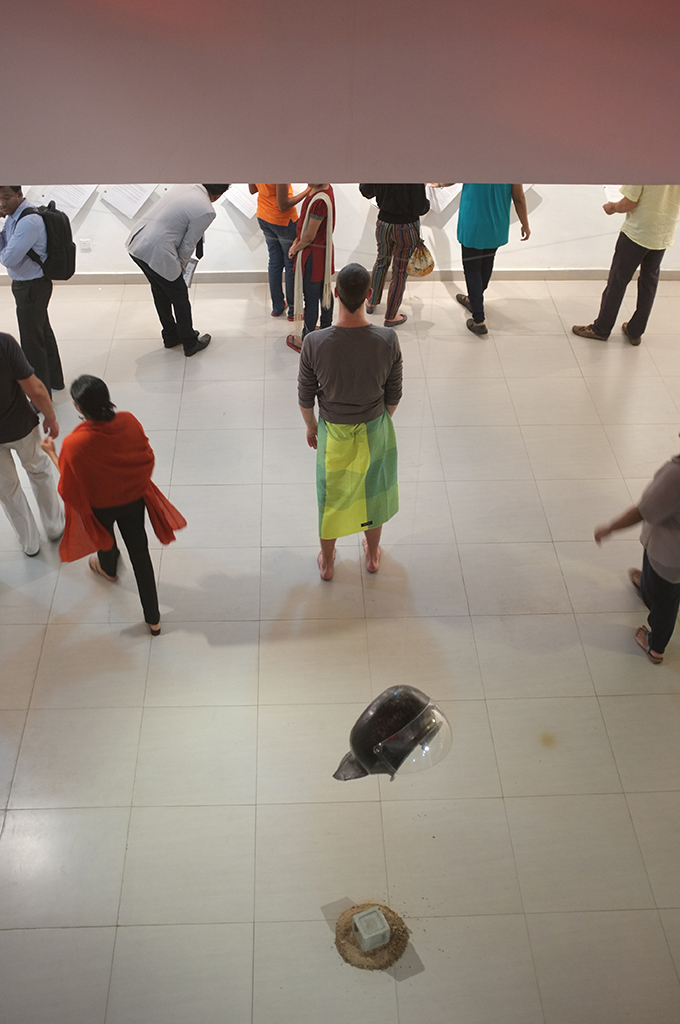

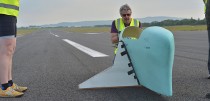
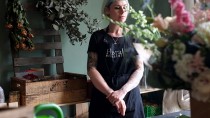









Comments